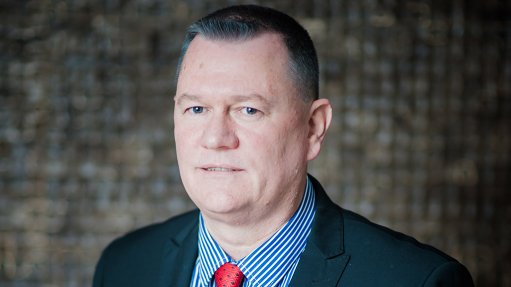
GREG NOSWORTHY Over past ten years, intratrade flow in Africa has increased by almost 300%
The Africa Free Trade Zone is a “fantastic” initiative that will easily increase tradability and, ultimately, increase trade flow among the 26 countries in Africa, says trade-related credit insurance solutions provider Euler Hermes MD Greg Nosworthy.
He adds, however, that the challenge is to align these countries to the rules and regulations regarding how the free trade zone works.
Over past ten years, intraregional trade flows in Africa have increased by almost 300%, which demonstrates the effort being put into intra-African trade on the continent, Nosworthy says.
However, while the Africa Free Trade Zone has its benefits, there are significant risks and challenges for businesses.
Smaller Countries The 26 countries have their own interests, and smaller countries will have the most difficulty because their economies can be affected negatively, as they have to compete with larger trading partners on the continent, Nosworthy points out.
“There are also payment risks, so when dealing with businesses in Africa, you need information on these businesses and their creditworthiness. There are also political risks for nonpayment. Every country has a different legal regulatory environment and you need to understand it to collect your money effectively,” he says.
Further, the risks in Southern Africa specifically are different from the risks elsewhere, with these risks pertaining to regulations and the way regulatory and legal systems are formulated.
This is what makes it difficult for companies to trade freely but the free trade zone will address this problem, he adds.
Insolvencies
After the economic crisis in 2008, insolvencies worldwide continue to decrease.
However, year-on-year insolvencies are still higher than what they were prior to the 2008 crisis.
Insolvencies in South Africa have decreased year-on-year, with a 13% drop last year, but Nosworthy notes that there has been an increase in insolvencies month-on-month this year, which is a worrying sign that the economy is slowing down.
“Locally, the increase in insolvencies is a result of infrastructural problems, power shortages and delayed orders and payments. “The slow economic growth rate is taking its toll on all companies. “Growth is slowing down in Africa, particularly in South Africa, because of the decreasing value of the rand,” he explains.
Euler Hermes believes that Africa will rebound. Nosworthy notes that the ten countries in Africa that have performed outstandingly have shown a combined growth rate of 7.8% in the past five to ten years, which indicates continued growth in Africa in the long term.
However, in the short term, gross domestic product (GDP) will grow at a slower rate.
“The trend over the past few months is that insolvencies are increasing, owing to various pressures. “We are hopeful that they will decrease over the next year or two, but the last six months have been characterised by tough trading conditions,” says Nosworthy.
Euler Hermes is active in 52 countries world- wide, which represents 92% of global GDP, and the company sees South Africa as the catalyst to help it move into the rest of Africa.